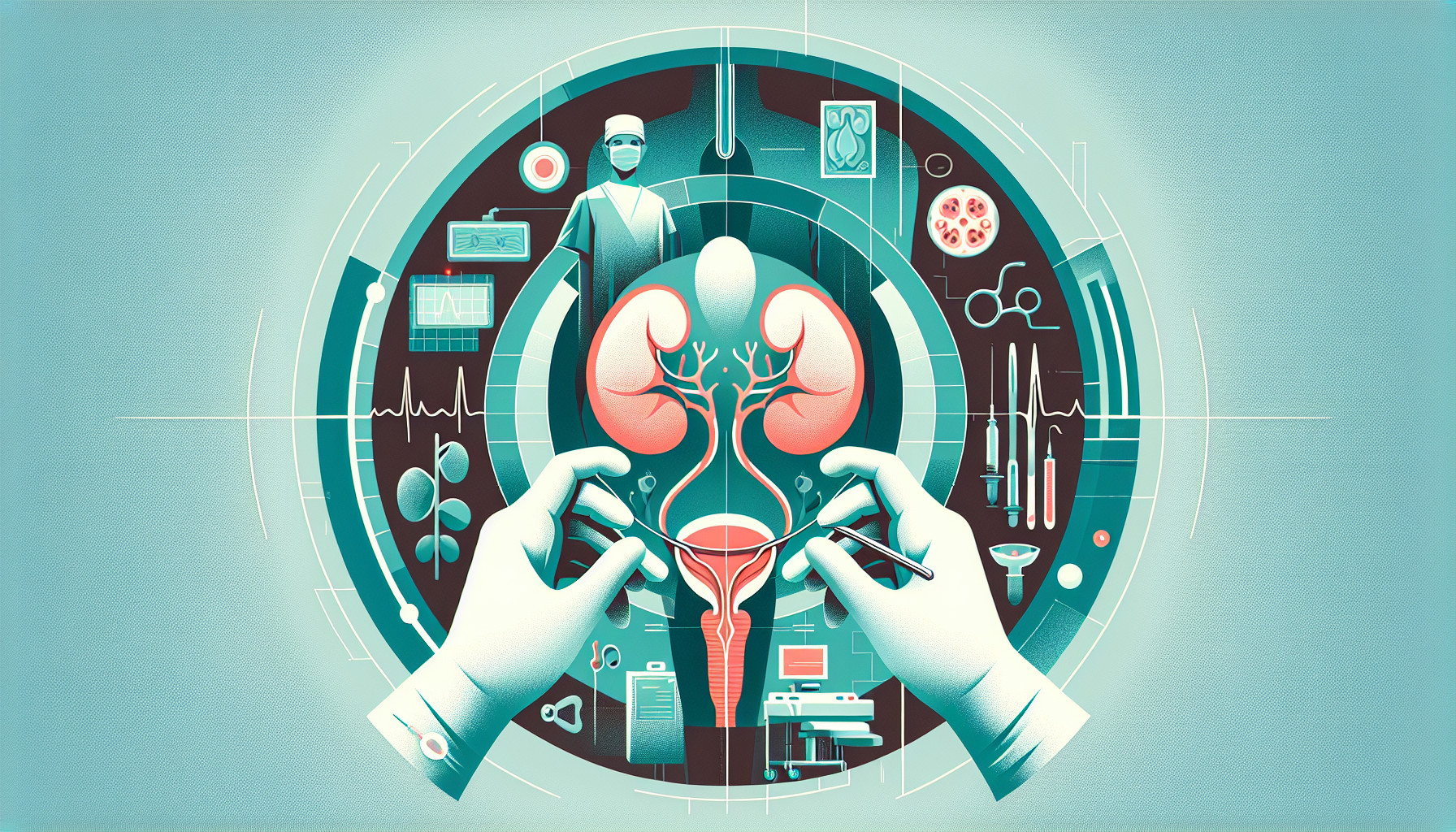Our Summary
This research paper is a review of existing studies on the diagnosis and treatment of bladder tumors that are found inside bladder diverticula, or pouches. The researchers searched a medical database in March 2019, using several search terms related to bladder cancer and bladder diverticula. They found 17 relevant studies. The results showed that diagnosing and treating this type of bladder tumor generally follows the same approach as for other bladder cancers.
However, there are some key differences: these tumors are more likely to be non-urothelial (not originating from the cells that line the urinary tract) and invasive (stage T1 and higher), but they don’t reach stage T2 because of the lack of a certain layer of muscle tissue. Also, partial removal of the bladder or of the diverticulum could play a role in treatment.
Among patients who had their bladder removed, survival rates were similar to those of other bladder cancer patients. However, the data on the accuracy of imaging and endoscopy for diagnosing this type of tumor is poor. There are no studies comparing different treatment methods for this type of bladder tumor.
The review has some limitations: the number of studies and their level of evidence is low, and the number and diversity of subjects in these studies is also low. Therefore, the existing literature cannot be used to make clinical recommendations for treating this type of bladder tumor.
Given that bladder cancer is the most common cancer of the urinary tract, and at least 1% of cases are found in diverticula, more research in this field is needed.
FAQs
- What are the diagnostic and therapeutic options for intradiverticular bladder tumour cases?
- How does the survival rate of cystectomized patients with intradiverticular bladder tumours compare to general bladder cancer patients after cystectomy?
- What are the limitations of current research on intradiverticular bladder tumour cases?
Doctor’s Tip
A helpful tip a doctor might tell a patient about bladder surgery is to follow post-operative care instructions closely, including resting and avoiding strenuous activities, staying hydrated, and taking prescribed medications as directed. It is also important to attend follow-up appointments for monitoring and to report any unusual symptoms or complications immediately.
Suitable For
Patients who are typically recommended bladder surgery include those with:
- Bladder cancer, especially those with intradiverticular bladder tumours
- Non-urothelial histology
- Invasive cancers (stage T1 and higher)
- Patients who do not have a muscularis propria layer in their bladder
- Patients who may benefit from partial cystectomy or diverticulectomy
- Patients who have not responded to other forms of treatment
- Patients with recurrent bladder tumours
- Patients with large or symptomatic bladder diverticula
It is important for patients to consult with their healthcare provider to determine if bladder surgery is the best course of treatment for their specific condition.
Timeline
Before bladder surgery:
- Patient may experience symptoms such as blood in urine, frequent urination, pain or burning during urination, or lower back pain
- Patient may undergo various diagnostic tests such as cystoscopy, imaging studies, and biopsy to confirm the presence of bladder cancer
- Treatment options may be discussed with the patient, including surgery, chemotherapy, and radiation therapy
- Patient may undergo pre-operative preparations such as blood tests, imaging studies, and medication adjustments
After bladder surgery:
- Patient may experience pain, discomfort, and urinary changes in the immediate post-operative period
- Patient may require a catheter for a period of time to allow the bladder to heal
- Follow-up appointments will be scheduled to monitor recovery and assess for any complications
- Patient may undergo further treatments such as chemotherapy or radiation therapy depending on the stage and aggressiveness of the cancer
- Long-term follow-up will be necessary to monitor for recurrence of the cancer and assess overall health and quality of life.
What to Ask Your Doctor
- What are the different treatment options available for intradiverticular bladder tumours?
- What are the potential risks and complications associated with bladder surgery for intradiverticular tumours?
- How long is the recovery time after bladder surgery for intradiverticular tumours?
- Will I need any additional treatments, such as chemotherapy or radiation therapy, after the surgery?
- What is the likelihood of the tumour recurring after surgery?
- How often will I need follow-up appointments and monitoring after the surgery?
- Are there any lifestyle changes or precautions I should take after bladder surgery?
- What is the success rate of bladder surgery for intradiverticular tumours?
- Are there any alternative treatment options available for intradiverticular bladder tumours?
- How experienced are you in performing bladder surgery for intradiverticular tumours?
Reference
Authors: Poletajew S, Krajewski W, Adamowicz J, Kołodziej A, Zdrojowy R, Radziszewski P. Journal: Urol Int. 2020;104(1-2):42-47. doi: 10.1159/000503868. Epub 2019 Dec 18. PMID: 31851992
